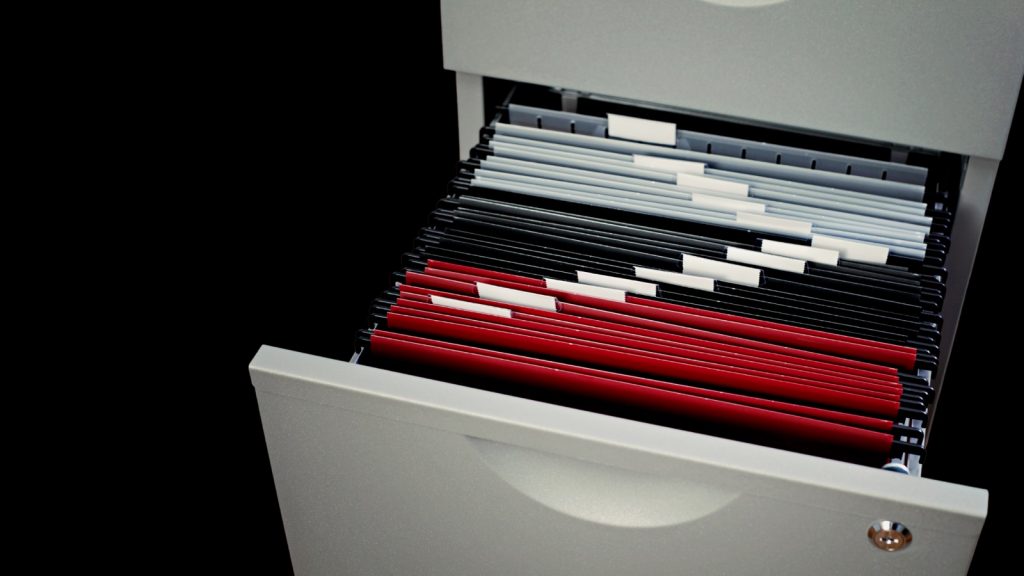Your company is growing… Hurray! But you notice that your files and folders are too. Boxes and crates of documents are piling up. Storage spaces, both physical and digital are getting full. What can the good office manager do?!
Records Management To the Rescue
It’s time to create a sustainable Records Management System that will ensure the your files are kept safe, secured organized and updated. Here are some practical tips and tricks to get you started:
Invest the Time and Effort
Treat this as an important project that you need to allot time, energy and budget for, not just an afterthought activity. Having a goods Records Management system will save your company a lot of time, money and effort. It has a direct and quantifiable ROI that Management will understand and see as valuable.
Create an Index
Create an Index list or Tracking sheet of all your company’s important records. This inventory system will help people find folders faster, monitor the flow of documents and audit if any critical document is missing. It will also show you how much volume of documents your company has which you can review periodically.
Standardize Labels & Categories
Naming, labeling and categorizing files in a consistent manner will help you and your team stay organized. Since there are many workers creating files daily, all of whom may have their own methods of naming, consider creating a File Labeling Guide. This will help with the order, sequencing and storage of records later on.
Secure Confidential Files
Surprisingly, some company’s overlook securing confidential files, both physically and digitally. I have witnessed critical files like salary records accidentally emailed to a group of managers. I have witness 201 files not being kept in a locked filing cabinet. Such accidents have dire consequences. Hence, it is important to identify which files are critical and confidential to keep them secured.
Prepare a Retention Schedule
There are prescribed retention periods for critical files, especially finance and legal related records. It is prudent to have a retention period, so that you and your team can be guided properly on when documents can and should be discarded.
Consider Renting Storage Units
If your office space is not enough to keep all your office records in the premises, consider renting storage spaces. Off-site Storage Spaces is a good alternative for safekeeping records that you do not use regularly. It can help you save on costs, provided that you have a good retention schedule in place.
Go Digital
Oftentimes, we are hesitant in discarding files because they might be critical, or the boss might look for it all of a sudden and we do not want to be blamed for throwing things away. One alternative is to Go Digital. Have important documents scanned, filed and indexed with proper back up. This is relatively more cost efficient than renting a physical space or warehouse for your records and files.
Prepare a Records Management Manual for Your Company
Company mandated policies for Records Management will guide departments and teams on how to label, file, index, secure, store and discard records. Having a well thought out policy, process and protocols in place will ensure continuity. Even if an employee resigns, the person who will take his place will know where things are and access vital information that are important for the job.
Learn and Consult with an Expert
Records Management has many factors and facets that are essential to learn. We recommend that you research, attend webinars and seminars, or even get a coach or consultant to guide you through the process step by step. If you need training and consultancy on Records Management, do check out Business Maker Academy.
Records Management is vital for all companies, big or small. It is an important endeavor that Top Management should invest in because it helps with the smooth operations, business continuity, data privacy and cost-savings for the company. Use these tips and tricks wisely and stay organized!
